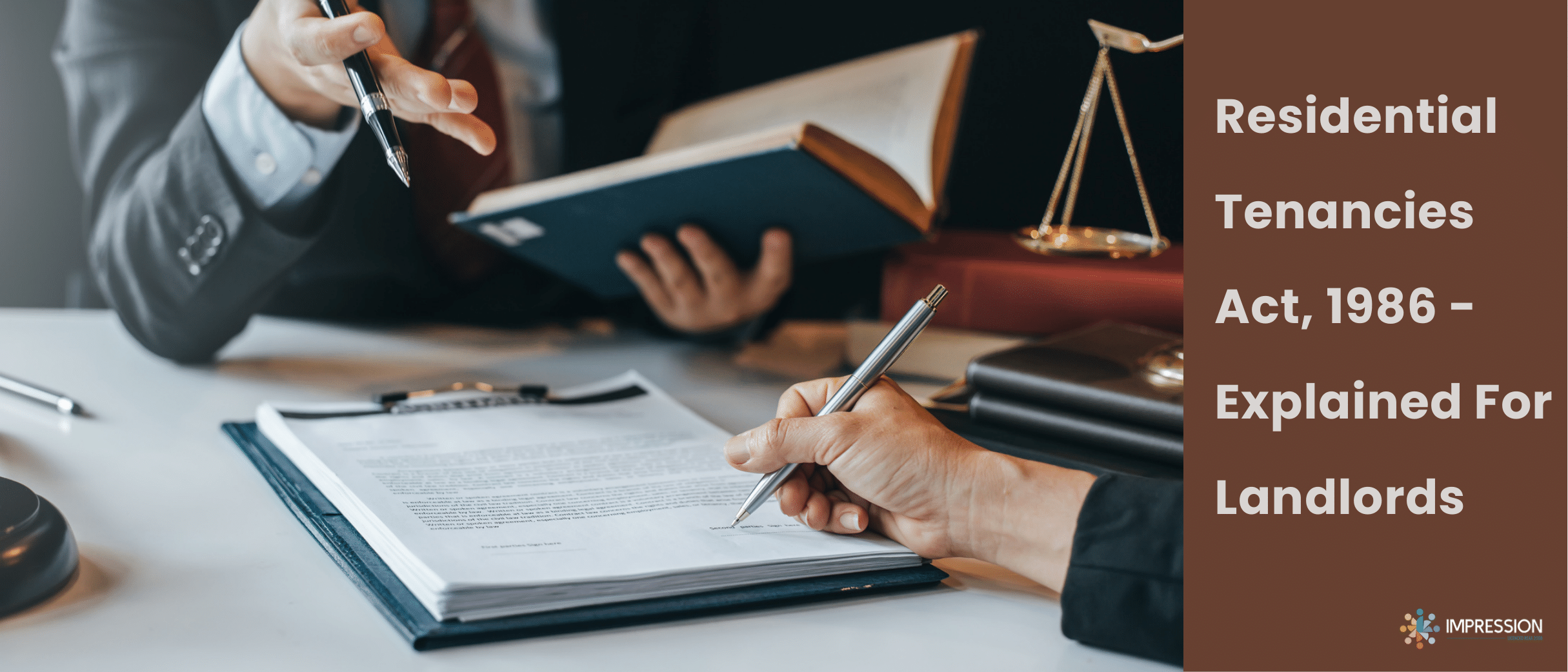
As a landlord in New Zealand, understanding the Residential Tenancies Act (RTA) is important for managing your property and maintaining a positive relationship with your tenants. The RTA outlines the rights and responsibilities of both landlords and tenants, ensuring a fair and safe rental environment. In this blog post, we’ll help you understand the key aspects of the RTA, so that you can ensure compliance and promote a harmonious tenancy.
Residential Tenancies Act 1986
The Residential Tenancies Act 1986 governs residential tenancies in New Zealand. It outlines the legal framework for renting properties, aiming to protect both landlords and tenants. The RTA covers everything from property standards and rent payments to dispute resolution and termination of tenancies.Landlord Responsibilities
1. Property Condition
As a landlord, you are required to provide and maintain the property in a reasonable state of repair. Regular inspections and prompt repairs are essential to comply with this obligation.
2. Quiet Enjoyment
Tenants have the right to quiet enjoyment of the property. This means landlords must respect tenants' privacy and cannot interfere with their day-to-day living without proper notice.
3. Health and Safety Standards
Landlords must ensure the property meets all health and safety standards, including providing smoke alarms, insulation, and ensuring the property is free from hazards.
4. Abandoned Goods
If a tenant leaves behind personal belongings, landlords must follow the proper procedures outlined in the RTA to deal with abandoned goods.5. Sale of Property
If you decide to sell the property, you must provide the tenant with the appropriate notice. The tenancy agreement remains valid, and the new owner assumes the responsibilities of the landlord.
6. Agent Requirement
If landlords are out of the country for more than 21 days, they must appoint an agent to manage their property. The agent acts on your behalf, so their actions are your responsibility.
Tenant Responsibilities
1. Rent Payment
Tenants are required to pay rent on time as stipulated in the tenancy agreement. Late payments can lead to penalties or termination of the tenancy.
2. Property Maintenance
Tenants must keep the property reasonably clean and tidy. They are responsible for any damage they cause, either intentionally or through neglect.
3. Reporting Damages or Repairs
Tenants should promptly report any damages or necessary repairs to the landlord to prevent further deterioration of the property.
4. Residential Use
The property should be used solely for residential purposes unless otherwise agreed upon in the tenancy agreement.
5. Vacating the Property
Upon vacating, tenants must leave the property in a reasonably clean condition and return all keys and security devices.
Prohibited Actions for Both Parties
Landlords:
- Must not seize tenant goods for unpaid rent.
- Cannot interfere with essential services like water, electricity, or gas without a valid reason.
Tenants:
- Must not withhold rent due to repairs or maintenance issues.
- Should not disturb neighbours or engage in illegal activities on the property.
- Cannot have more occupants than allowed in the tenancy agreement.
- Must not make unauthorized alterations to the property.
Additional Rules for Boarding Houses
Boarding house tenancies have specific rules under the RTA, including different notice periods and rights regarding personal space and communal areas. Landlords of boarding houses must comply with these additional regulations to ensure a safe and respectful living environment.
1. Written Tenancy Agreement
A written tenancy agreement is mandatory and must outline all terms and conditions of the tenancy. It provides a clear reference for both parties and helps prevent disputes.
2. Tax Implications
Rental income is taxable, and landlords must declare it in their annual tax returns. It's advisable to consult with a tax professional to ensure all tax obligations are met and to take advantage of any available deductions.
Flatmates and Shared Properties
Thinking of getting a flatmate or sharing the rental property? Here are some important rules you should know:
- Tenancy Agreement for Flatmates: Each flatmate should have a clear agreement outlining their responsibilities and rights.
- Joint & Several Liability: All tenants on a joint tenancy agreement are equally responsible for rent and damages.
- Rent Payment, Bond, and Maintenance: Clear arrangements should be made regarding the payment of rent, bond, and maintenance responsibilities among flatmates.
- Subletting: Subletting requires the landlord's consent.
Proposed Changes to the Residential Tenancies Act
The New Zealand government has proposed several changes to the Residential Tenancies Act to enhance tenant protections and adjust landlord obligations. These changes aim to create a more balanced and fair rental market. The proposed changes include:
- 90-day 'no cause' terminations: The proposed clause states that landlords do not have to provide a specific reason for ending the tenancy, as long as they offer a 90-day notice period.
- Reduced notice periods:
- Tenants' notice period for ending a periodic tenancy will be reduced from 28 days to 21 days.
- Landlords' notice period will be reduced from 90 days to 42 days if they intend to sell the property, undertake renovations, redevelop, or move in.
- Extra rent for pet damage: Landlords will be permitted to ask for additional rent to cover potential damage caused by pets. Landlords can now require a pet bond up to two weeks’ rent, and tenants need written consent to keep a pet.
RTA 1986: Wrapping Up
Understanding and complying with the Residential Tenancies Act is essential for both landlords and tenants. By adhering to the RTA, landlords can provide a safe, fair, and enjoyable living environment, while tenants can ensure their rights are protected. Regularly reviewing and staying updated with any changes to the RTA will help maintain a positive rental experience for all parties involved.

